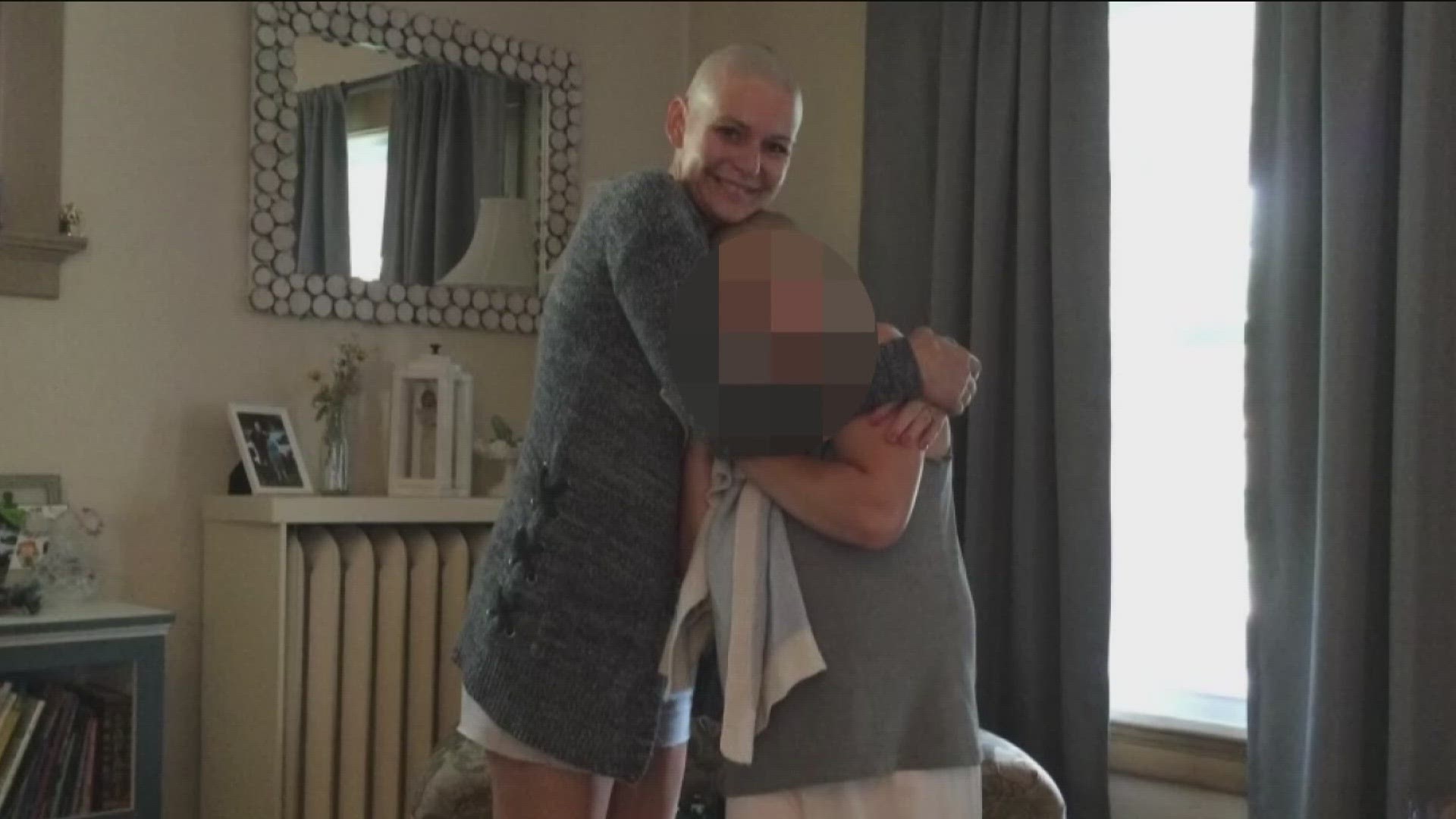BUTLER COUNTY, Ohio — A Butler County judge sided with a local hospital and reversed a previous court order forcing it to honor a prescription of ivermectin, which infectious disease experts have warned against as a COVID-19 treatment, for a patient who has spent weeks in the ICU with the disease.
After two days of testimony and arguments, Common Pleas Judge Michael Oster issued an order Monday siding with West Chester Hospital. He said the hospital bears no duty to honor a prescription written for Jeffrey Smith, 51, for ivermectin, a drug used as a dewormer in horses and an anti-parasitic in humans.
The drug has surged in popularity as a COVID-19 treatment, egged on by conservative politicians and media figures, despite adverse warnings from the Centers for Disease Control, the Food and Drug Administration, the American Medical Association, the drug’s manufacturer and others.
“This Court is not determining if ivermectin will ever be effective and useful as a treatment for COVID-19,” Oster said.
“However, based upon the evidence, it has not been shown to be effective at this juncture. The studies that tend to give support to ivermectin have had inconsistent results, limitations to the studies, were open label studies, were of low quality or low certainty, included small sample sizes, various dosing regiments, or have been so riddled with issues that the study was withdrawn.”
Julie Smith brought the lawsuit on behalf of her husband, Jeffrey Smith, who tested positive for COVID-19 and was admitted to the ICU July 15, where he remains today. He has been sedated, intubated and on a ventilator since Aug. 1.
The hospital refused to honor the prescription, prompting the lawsuit. On Aug. 23, another judge wrote an order demanding the hospital administer the ivermectin as prescribed. Monday’s order nixes the August order.
Julie Smith testified that neither she nor her husband were vaccinated against COVID-19. She said it was “experimental,” so she didn’t trust it.
“We didn’t feel confident it had been out long enough,” she said during a hearing Thursday.
She later connected with Dr. Fred Wagshul, a founding physician of the Front Line COVID-19 Critical Care Alliance, a nonprofit that touts ivermectin as a wonder drug. Wagshul is a licensed physician but is not board certified within any specialty and hasn’t worked in a hospital for 10 years, according to his testimony.
He prescribed Jeffrey Smith 21 days’ worth of ivermectin without reviewing Jeffrey Smith’s clinical information or talking to any of his treating physicians. He said the pharmaceutical industry and U.S. government have smeared ivermectin and “censored” its allegedly undeniable beneficial value.
However, when asked if it had benefitted Smith, he hedged.
“I honestly don’t know, but the rule of thumb is, when something is working, you don’t stop it,” he said.
Several witnesses for the hospital cast doubt on Wagshul’s testimony and credibility as a physician. Dr. Ferhan Asghar, a surgeon and chief of staff at the hospital, said a physician who is not board certified would never be admitted to practice at West Chester, per hospital policy. He said it was also a “concern” that a physician would issue such a controversial prescription without seeing the patient or reviewing his information.
Dr. Jaime Robertson is an infectious disease physician who sits on a committee at UC Health, which staffs West Chester Hospital, to review available evidence to guide treatment for COVID-19 patients. He said the evidence doesn’t necessarily conclude ivermectin doesn’t work; instead, he said ivermectin bears risks just like any treatment but there’s no conclusive evidence to show enough benefit exists to outweigh that risk.
“I think the problem here is there are conflicting outcomes in public health literature,” he said.
Dr. Daniel Tanase, Jeffrey Smith’s treating physician, disputed any notion that the ivermectin demonstrably helped his patient, and said there’s not enough evidence to support the use of ivermectin on COVID-19 patients.
“We follow science and we follow what the guidelines are,” he said. “So yes, I don’t think ivermectin is what he needs at this time.”
On Aug. 26, the CDC issued a health alert warning of a five-fold increase of calls to poison control centers regarding ivermectin exposure compared to a pre-pandemic baseline. These included exposures related to topical and veterinary formulations of the drug.
“Clinical effects of ivermectin overdose include gastrointestinal symptoms such as nausea, vomiting, and diarrhea,” the CDC states. “Overdoses are associated with hypotension and neurologic effects such as decreased consciousness, confusion, hallucinations, seizures, coma, and death. Ivermectin may potentiate the effects of other drugs that cause central nervous system depression such as benzodiazepines and barbiturates.”
Several other federal authorities have issued similar warnings. Even Merck, which manufactures the drug, issued a statement in February affirming its position that there’s no scientific basis for a potential therapeutic effect against COVID-19 from ivermectin. The company also noted a “concerning lack of safety data” in the majority of studies.”
A review of available literature conducted in August by the journal Nature found there’s no certainty in the available data on potential benefits of ivermectin.
Ohio Hospital Association President Mike Abrams said in a statement before Oster issued his order stating there is insufficient data to support ivermectin as a treatment for COVID-19. He called the initial order “concerning” in regards to forcing a hospital to use a drug unapproved for use.
“OHA believes it is an extraordinarily dangerous precedent for judges to practice medicine and order unproven medical treatments over the objections of highly-trained clinicians and against all standards established by the medical community,” Baker said.
Bill Paiobeis, an attorney for West Chester Hospital, declined comment Monday, citing the potential for an appeal.
Ralph Lorigo, an attorney representing Smith, said he won the lawsuit in a way. He said Jeffrey Smith obtained 13-days’ worth of ivermectin, and the hospital has since told Julie Smith that they’re ready to begin to ween him off the ventilator.
“Julie has won this case; I don’t care what this judge says,” Lorigo said in an interview. “We are believers he’s going to survive because of ivermectin.”
He said he’s not planning any appeal as one would effectively be moot.
“This is a man who has been helped by the medication, and this is a judge who just doesn’t get it right,” Lorigo said.



